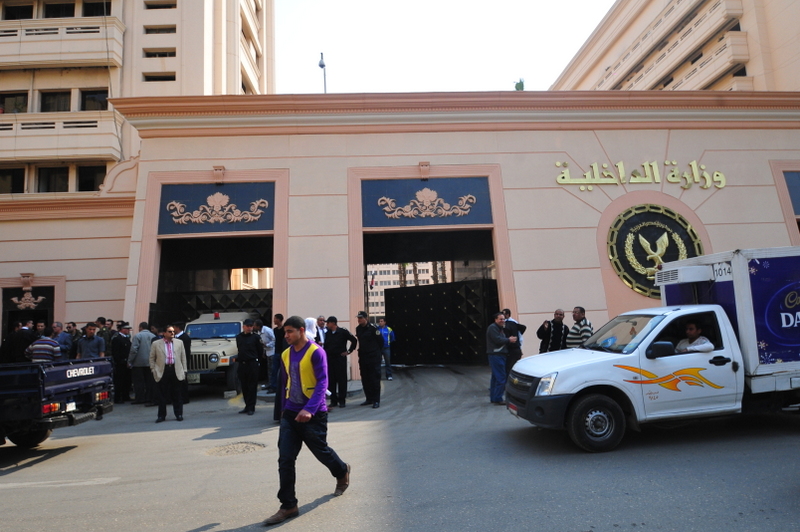
By Emad El-Sayed
“Al-Sisi’s visit to Germany will not be an easy one.” This was my impression after meeting with a journalist delegation and the German ambassador in Cairo, Hansjörg Haber. Haber sent direct messages to Al-Sisi regarding the questions for clarification that he will face during his visit to Germany next month.
The messages the ambassador sent during the journalists delegation’s meeting clearly indicated Germany’s certainty that “not every Brotherhood member is a terrorist”. Despite the journalists’ objections during the questions, Haber talked about Abul Ala Maududi and Sayyid Qutb, their ideologies, and the literary ideologies of the Brotherhood members. In his words, the ambassador meant to say that his country knows Egypt and Egyptians.
Haber’s messages, in my personal opinion, reveal a dangerous conviction, if my doubts are proven to be true. It seems that the Germans, up to this day, have not seen tangible evidence proving the involvement of the Muslim Brotherhood in any terrorist attacks the country witnessed. It may also be clear that the Germans do not put into consideration the Egyptian government and a class of the Egyptian society’s certainty of the doctrine of the Brotherhood – they only look at clear evidence that the Egyptian regime may fail to present to the West and the US.
The delegation included a number of the most widespread and influential Egyptian newspaper chairmen. The ambassador kept sending messages and clarifying the Western suspicions against the Egyptian regime’s methods in facing terrorism, adding that the “collective” executions are criticised by the West and globally.
Haber declared that, after investigating the case of the Al Jazeera journalists, it appeared that the Egyptian judiciary system has been under criticism after the rulings in the case.
The ambassador, whose last words in his speech were “long live Egypt”, carried a clear message of the vision of the German regime on what is happening in the Egyptian streets. The message made it clear that Al-Sisi will be criticised if he fails to convince Germany and the media of the existence of freedom in Egypt, and that the Egyptian judiciary system still has integrity.
The presidential adviser may well have to prepare for this visit, which will be of international interest, due to the recent relations between the two countries. These relations were full of tension and different views regarding what the country is going through.
The ambassador’s speech also revealed the failure of vision in Egypt. The Egyptian government, as well as its media, resolves crises in an internationally-criticised way. The same method was previously used by Hosni Mubarak’s regime, which was proven to be a failure in many crises.
Internal talks are not necessary in resolving every issue, while defaming the opposition will negatively impact the regime’s integrity. On the other hand, distorting facts and changing them is no longer possible in light of the drastic development in mass media.
Europeans and Americans are not aware of our internal talks; they only listen to the media, owned by the state and the political entities opposing the current regime.
Advisers to the president need to have a clearer vision on how the West thinks. They also need to evaluate the events so that they can create a clear visualisation on how to face the negative political changes in the Egyptian streets.
The president is now asked to give orders to the state-owned media so that they will change their tone. He also should study its real needs, so that they can speak objectively to the international powers and change their minds.
This is not going to be an easy visit, and what happened in Spain may well happen again. There will be major points of criticism from the international community towards the Egyptian regime, which is also taking place internally. However, internally, reactions are either exaggeratedly violent or extremely apathetic. This leads to an imbalance in the vision and the methods of resolving conflicts, resulting from the lack of a government plan to increase the people’s freedom.
The German ambassador’s messages led me to ask two questions: where are Egypt’s external media offices? What is their role before Al-Sisi visits a super-state? Why was Al-Sisi invited to visit Germany with all these criticisms? Why did he accept if he was going to be criticised without presenting tangible evidence and clear answers?
I believe that the answer to the first question is known to anyone who travelled outside Egypt and saw the poor performance of the Egyptian media offices, as well as some Egyptian embassies abroad.
As for the second question, I believe that fear of what might happen in Libya, and Egypt’s capabilities to interfere (they are actually two of the main factors in Libya), placed Egypt in the position of a necessary power for the international community. This, consequently, may be a great starting point for the Egyptian regime to improve its image. A positive and applicable strategy to make changes in the impressions and convictions of the international community will also be of benefit to Egypt.
Once again, the visit may not make many achievements. The billions-worth of contracts that were recently signed with one German company may be the only reason for a “formal” relation between the two regimes. Perhaps this was the only reason for the visit.
Everyone must look again into the internal policies and absorb all political spectra, especially those who have the same suspicions of the ambassador, regardless of their number. This is so that crises would not be aggravated, causing us to go back to being “a state against the people”.
Emad El-Sayed is an Egyptian journalist who has worked in online journalism since 2000. He was the Editor-in-Chief of Masrawy news website and Deputy Editor of ONA news agency in Egypt. He has received awards from BBC and Deutche Welle.


